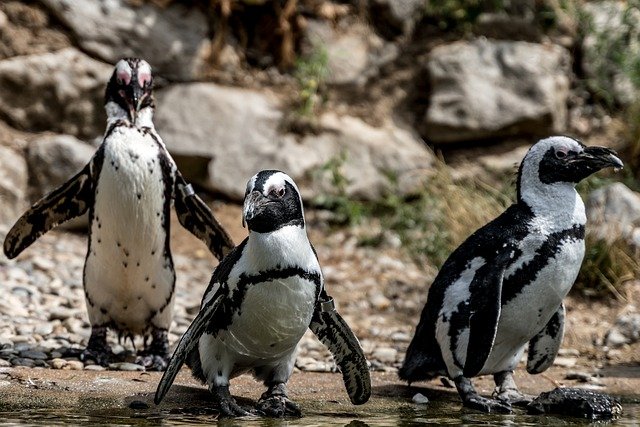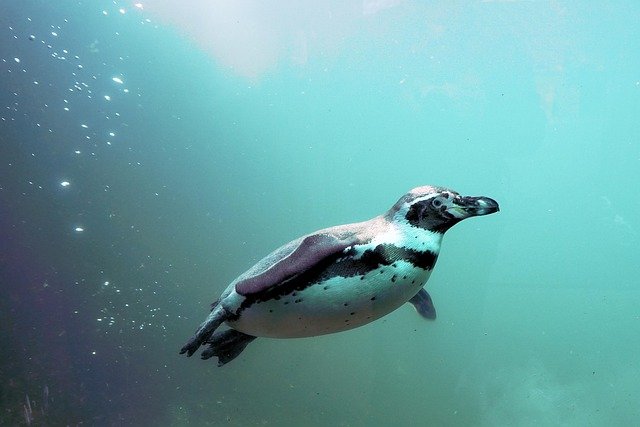**Topic: "The Social Dynamics of Penguin Colonies: How Social Behavior Influences Survival and Bre

The Social Dynamics of Penguin Colonies: How Social Behavior Influences Survival and Breeding
Penguins are one of the most fascinating and socially complex groups of birds. Found primarily in the Southern Hemisphere, these flightless birds exhibit a range of social behaviors that play a crucial role in their survival and breeding success. In this post, we will explore the social dynamics of penguin colonies and how these behaviors influence their overall well-being.
The Importance of Social Structure
Penguins are highly social animals, often living in large colonies that can number in the thousands. This social structure provides several advantages:
Protection from Predators: Living in large groups helps penguins reduce the risk of predation. The "dilution effect" means that the chances of any single individual being targeted by predators are lower when they are part of a larger group.
Thermal Regulation: In harsh environments, such as the icy waters of Antarctica, penguins huddle together to conserve heat. This behavior not only helps them survive extreme temperatures but also fosters social bonds within the colony.
Resource Sharing: Penguins often forage in groups, which can increase their foraging efficiency. By working together, they can locate food sources more effectively and share information about the best feeding grounds.
Social Behaviors and Breeding
Breeding season is a critical time for penguins, and their social behaviors play a significant role in reproductive success. Here are some key aspects:
1. Courtship Displays
During the breeding season, penguins engage in elaborate courtship displays to attract mates. These displays often include vocalizations, physical posturing, and synchronized swimming. Such behaviors not only help individuals find partners but also strengthen pair bonds, which are essential for cooperative breeding.
2. Nesting Colonies
Penguins typically nest in colonies, which provides safety and social interaction during the breeding process. Nesting in groups allows for communal defense against predators and can enhance the survival rate of chicks through social learning and support.
3. Chick Rearing
Once the eggs hatch, both parents are involved in caring for the chicks. This cooperative breeding strategy is vital for the survival of the young, as it allows for increased vigilance against predators and the sharing of feeding duties. In some species, such as the Emperor Penguin, males incubate the eggs and fast during this period, while females forage for food.
Social Hierarchy and Competition
While social interactions can enhance survival and breeding success, they can also lead to competition and conflict. Hierarchies often form within colonies, influencing access to resources and mates. Dominant individuals may have better access to food and nesting sites, which can affect their reproductive success.
1. Aggression and Territoriality
Aggressive behaviors can arise during the breeding season as individuals compete for prime nesting sites. Some species exhibit territoriality, defending specific areas against intruders. Understanding these dynamics is crucial for conservation efforts, as disturbances can disrupt social structures and breeding success.
2. Social Learning
Penguins also demonstrate social learning, where younger individuals learn from the behaviors of older, more experienced birds. This learning can impact foraging techniques and predator avoidance strategies, ultimately influencing survival rates.
Conclusion
The social dynamics of penguin colonies are intricate and multifaceted, influencing their survival and breeding success. From cooperative foraging and nesting behaviors to the complexities of social hierarchies, these social interactions are essential for the resilience of penguin populations. As researchers continue to study these fascinating birds, understanding their social behavior will be crucial for conservation efforts, especially in the face of climate change and habitat loss.
By appreciating the social lives of penguins, we can better protect these remarkable creatures and their habitats for future generations.

Upvoted! Thank you for supporting witness @jswit.